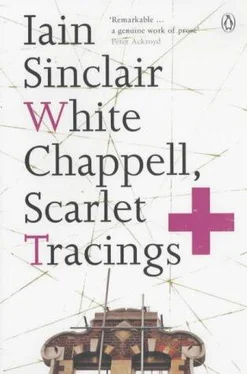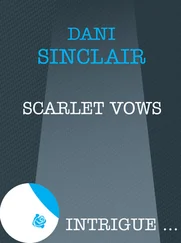Joblard stood in front of him, in silence, hand stretched out for another pair of bottles.
‘Keats wasn’t frightened to borrow from Chatterton, not a bit. It’s not theft, you understand, an act of generosity; you lay yourself open to a form of occult possession. You complete the other man’s work, like one of those figurines the Egyptian priests used to leave in their tombs. The job doesn’t end with death. And neither does it belong to any individual.’
Joblard’s hand, opening for a stout, receives a postcard.
‘You know the Wallis painting, of course. In the Tate, I believe. Never seen it myself; don’t choose to get my feet wet crossing the river. Would only spoil the illusion. I prefer the card. It stands in the same relation to the painting as the painting stands to Chatterton.
‘You see, it’s not Chatterton at all — it’s George Meredith. Isn’t that a hoot? Posing in purple breeches, shirt open to the waist, on a bed in Gray’s Inn. The silly tart.
‘That’s why the view from the window is completely wrong, St Paul’s? From Brook Street, Holborn? Alignment’s completely cocked up.
‘But what does it matter? This version is far more fun than the so-called truth. Why watch the wretched creature strain to perform when you can take home a pin-up?’
Joblard emitted a sound, between a groan and a curse, unable to wait any longer, trying to uncap the bottle with his teeth.
‘I suppose you’d like the vomit and the venereal sores; he’d caught a bad dose. I’d always go for suggestion. The window behind him open just a crack. Nothing blatant.
‘Wallis went off with Meredith’s wife. Stupid cow. He soon got shot of her. It was Chatterton he was after. He should have bought her a red wig.
‘Once Chatterton got to Spitalfields he should never have left. Better not to have gone at all, I agree. Should have stayed home with mother. He had the perfect set-up: plagiarising the unwritten. If it worked he could take the credit and if it failed, well, it wasn’t his anyway. We’ve all got to find ways to distance ourselves from our own inventions.
‘That was the purpose of the poison. To split himself from his work, so that he could outlive it. He became a presence, manifesting himself in other men’s plays and novels; spooking Francis Thompson. Dangerous ground in which to get lost.
‘When I first moved down here a friend of mine used to buy all his vegetables from the oldest and most decrepit men in the market. When I asked him why he said that it gave him a strange feeling to think that one of them might have known Oscar Wilde.
‘Load of bollocks, if you ask me.’
I am out of the door. The terror. Now they are all writers; all rewriting the past, all being rewritten by selves as yet unborn.
I can hear the barman’s voice, calling after me, ‘What’s your hurry? Do you want to put me in a book?’
We have to escape, swept along, no conscious decision taken; Joblard, for a man of his weight and substance, in pinstripe Bunter trousers, celluloid collar, black coat, sets out at an inhuman pace; down Tooley Street, vintners, signs, the rim of St John, Horselydown, supporting a bureaucratic glaze, over Tower Bridge, The Minories; it is not planned, we are there again.
‘Come up and be dead!’
Matfellon, Hanbury, Durward. Winding it in. The heart’s stomach. There is no breaking away from it. It describes us. Leaning into the magnetism, back into the belly of the secret. But we are within our limits, we are still bound by the circumference of reason; our energies, inflamed, fall back into themselves.
In spite of his best efforts Dryfeld was an interesting man, a man of interests: but there were dozens of other men who would have liked nothing better than to cleave that interest, to slash into it, like a blade through a melon. He was also a man possessed, a materialist. He was never there in front of you; he was always driving, forcing, rigid brow, battling on.
If you could trap him for a few hours — let us say in a car, going towards a goal he approved, the rumour of a virgin bookshop — his deeper concerns or interests would surface in a world-view that seemed, at worst, his own and, at the shallowest level, alive, vivid, cast in sharply practical language, hot, the syntax spat like rivets.
If you wanted to talk about prisons, asylums, containments — he could give you facts, anecdotes. If you wanted to split envy from jealousy, he was your man. If you wanted to talk the culture, he had seen it, swallowed it. His greed for all this was the greed of a man who has, at some point, been denied access, wholly, to these things. Who has decided to invent himself, but is not committed to the result of this brutal caesarean section.
Prognathous, he set himself to provoke the tremulous and corrupt, but essentially trivial, sub-continent of bookselling. He made it a life. Other parts of him paid for it, were subdued. He was not without his supporters, and the nature of his charm, invisible to the untutored eye, was not lost on a succession of otherwise dementedly respectable ladies. Married women were a particular target: a form of emotional prophylactic.
He was able to recognise unique qualities in the most unlikely members of the trade, but unable to give a true value to Nicholas Lane who was his Contrary, more liquid, borderless, but rigorously exact in his attention to detail. Nicholas Lane was uninventing himself, removing himself, he was there less and less. He was generously shifting out of the human into a force of nature. Lichen under the fingernail. Coming through mere addiction until he was addiction. The ache without the head. The line without the shadow. Absolute damage, the critical state. A need without a source: disembodied, and of great delicacy.
Though they appeared to have so much that was common, taking the same world metaphor, the buying and selling of books, feeding the same denials, refusing meat, cooked or raw, they were the poles between which the living current ran.
The two best scalpers of their generation: cornered, poke gone, skinned, frenzy’d out. Dead kites. Rubber cheques. Sweat telephone withdrawal. Unhoused.
Dryfeld was ready to tear up the floorboards to get his cash: Nicholas Lane was ready to watch the evolution of dust in air, to wait for manclay to reform on the dry bone floor of lunar valleys.
One scalper propelled by what he had made himself, rushing into his own death mask and the other escaping, ducking behind what he truly was.
The space between them is infinite.
The narrator, seeking failure, and obscurity, as the only condition spiritually adequate to his self-esteem, is glass; he watches them, not watching, being. And can only live in them and feeding from them. Which is a state of being as full and as empty as they themselves are.
It’s one of those short nights that go on for ever; slatted blinds sealing the cage, the dealers staring into their naked obsessions, the telescoped barrel of a gun. The suicide hour of cold coffee and alien voices on the radio. Waiting for apocalypse announcements with fatalistic calm. Reactions slowed: it’s like having to tell some other body what to do, and without moving your lips; like lifting a dead man underwater.
We can all hear the scratching and tapping at the window and we all believe it — but so what, it couldn’t matter less. We’re cancelling each other out.
The window is so loose, the frame so rotten, that it cannot be locked: it is slowly being lifted, the blinds give a death-rattle, bones on string. White fingers tangle themselves in the slats, worms in a chinese lantern. A sick head appears; the chalky scalp, with its wet fleece, crowns, haloed in sodium, fuzzy, lemurian. Dirty hands grope for something solid. Howard Omega.
Читать дальше












